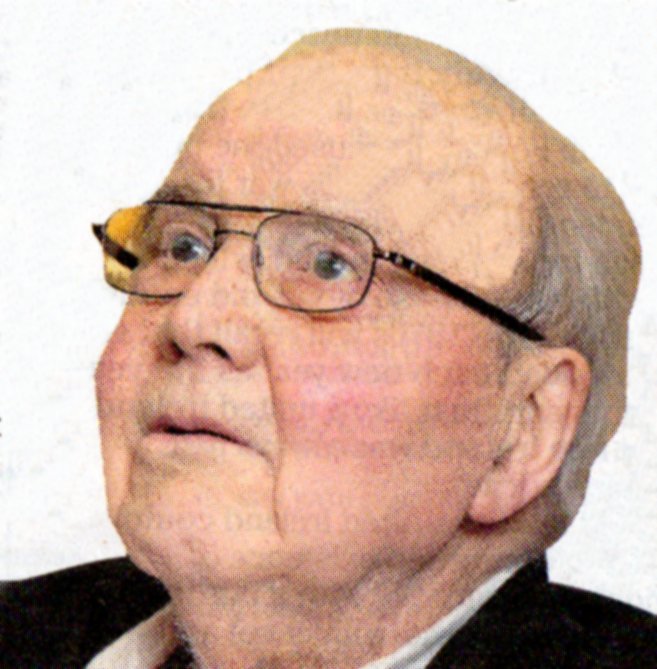 Brian Trainor devoted much of his professional life and his 30-year retirement to making good the almost-irreparable damage done to Irish archives by the destruction of the Four Courts during the Civil War in 1922.
Brian Trainor devoted much of his professional life and his 30-year retirement to making good the almost-irreparable damage done to Irish archives by the destruction of the Four Courts during the Civil War in 1922.
Initially as an archivist from the mid-1950s, then as director of the Public Record Office of Northern Ireland from 1970-87 and chairman of the Irish Manuscripts Commission and the National Archives Advisory Committee, he was at the forefront of the campaign to improve the quality and awareness of historical sources whose availability and interpretation have played such a vital role in the improved understanding of the island’s past.
Bernard Ignatius Trainor was born in 1928 in Coleraine, the son of a railway official, and although his father died when he was three, it was that mixed railway community which imbued him with a lifelong sense of the importance of cross-community relations. In 1939 the local church funded scholarships to St Columb’s College in Derry for Brian and his older brother Frank.
In 1949 he obtained a first class honours degree in history at Queen’s University Belfast, where he was appointed assistant lecturer.
In 1956 Brian began work as assistant archivist in the Public Record Office and from then until the late 1970s he embarked on an extensive and energetic campaign throughout Northern Ireland of identifying and accessioning historical records from solicitors’ offices, businesses, linen firms threatened with extinction, and thousands of family records.
Dr Trainor succeeded Ken Darwin as director in 1970, and realised his vision as the office moved to purpose-built premises in Balmoral Avenue.
Now the major holdings of documents could be stored under proper conditions and accessed by students, academics, genealogists and casual researchers alike.
Additional staff facilitated the dawning of a golden age as he oversaw PRONI becoming an outstanding source of academic riches, producing pioneering studies in the field of social, economic and political history.
A programme of publications was launched (Aspects of Irish Social History, which he edited with Bill Crawford, went into several reprints and remains a classic), resource packs for teachers produced, seminars and exhibitions hosted, links formed with academic institutions throughout Ire1a n d, teachers seconded and scholarship encouraged.
With extraordinary application, he created an outpost which embodied his ideal of an institution where archives and documentary collections were made freely available.
The vision strongly reflected Brian’s work ethic and personal values. It was a vocation and a profession.
This mission was initially carried out with the minimum of intervention from officialdom in Stormont.
That began to change however when collections of governmental records began to be added to PRONI.
The 30-year rule for access to these holdings, and the need to act in conformity with UK practice introduced constraints on their use: controversy arose as academics were denied information reflecting adversely on former Unionist administrations.
Such constraints were contrary to Dr Trainor’s instincts and he found it frustrating and uncongenial.
He took early retirement in 1987 to devote himself to the Ulster Historical Foundation, an independent historical and genealogical research and publication agency, formerly part of PRONI. Among his contributions were annual lecture tours in the United States (44 of the 50 states visited) and Canada, involving herculean travel by Greyhound bus and hired car.
He also championed the Foundation’s involvement in the Irish Genealogical Project, an all-Ireland initiative compiling databases from church and civil birth, death and marriage records.
He retired as research director in 2006 but continued with the famous lecture tours until the age of 85.
Dr Trainor was closely involved in the 1980s in the campaigns to save the Linen Hall Library and Friar’s Bush graveyard in Belfast.
His archival vision incorporated a strong all-Ireland identity, something that was recognised by Dr Garret Fitzgerald in 1987 who appointed him chair of the management committee of the National Archives Advisory Committee.
He also served on the Irish Manuscripts Commission, including as chairman from 1976-77 and 1987-99.
Dr Brian Trainor died aged 90 at his Belfast home on August 22.
After his funeral at St Brigid’s Church, Derryvolgie, his remains were returned to Coleraine for burial.
Brian is survived by his wife Pilar, originally from Madrid, his children, Rosana, Pancho and Katrina and five grandsons.
Irish News, Saturday 15 September 2018



